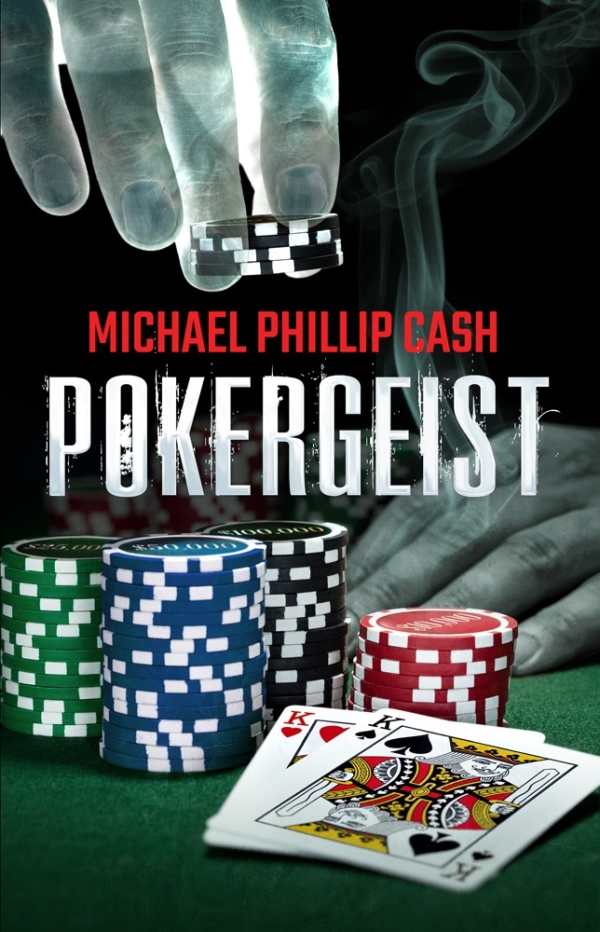Pokergeist
This quick and snappy read is a thrilling look into the glitzy world of poker, casinos, and competition.
In Michael Phillip Cash’s Pokergeist, amateur Telly Martin enters the International Series of Poker with one trick up his sleeve—the ghost of the legendary player Clutch Henderson by his side, coaching him through the tournament. Pokergeist is a fast-moving look at the world of gambling, where the old and the new guard clash, and fortunes can change in an instant. Cash expertly sets up the conflict among a circle of characters who have left their fates in the hands of the cards, and where luck, skill, and even cheating can turn the tide of their lives in an instant.
In the prologue, longtime champion Clutch, now in his late sixties, faces off against upstart Ant, who made his way initially through online gambling. Clutch is skeptical of such a trajectory, stating that, “In the end, the game ain’t real if it’s through a machine.” But no sooner does Clutch lose to Ant than he suffers a heart attack and dies. Telly then takes up his mantle, unwillingly at first, when the ghost of Clutch refuses to leave him alone until he wins the title that slipped out of Clutch’s grasp. Swearing, womanizing, boozing Clutch makes an enjoyable foil to the more staid, cautious Telly, who is seeking his fortune in Vegas after a lifetime of playing by the rules.
The narrative moves at a good clip throughout, with a mix of snappy dialogue and brief but evocative description, as when early on Clutch notices that “a chunky gold bracelet glittered from the nest of cash, looking like pirate plunder.” The conflict between upstart Ant and old-world Clutch is also intriguing, though Ant then disappears from view for almost the entire rest of the novel, as instead Pokergeist moves to focus on Telly’s reluctant but hungry attempts to break into the gambling elite. The themes grow a little more muddled in this middle portion, as the conflict between Ant and Clutch disappears and Telly’s gambling struggles come into clearer focus.
Telly is an unusual character as well, a man who had spent most of his life on a more respectable path, and then somewhat inexplicably felt a calling to gamble. His single-minded pursuit of gambling seems otherwise out of character for him, and his girlfriend, Gretchen, is strangely understanding of this sudden change of habits, working double shifts at a bar to support his new ambitions. As Telly himself points out, in this new world he “was unglued from all that was familiar in his former reality. Here, his education worked against him; his work ethic meant nothing; and his morality was useless.” Though Clutch’s desire for revenge and redemption are clearer, Telly’s motivations are muddier, and he cycles between reluctant participant and avid competitor throughout the novel.
Overall, Pokergeist is a quick and snappy read from an author who has a good handle on pacing and story. Though the themes seem to shift as the narrative progresses, the novel will appeal to those looking for a thrilling glimpse into the glitzy world of poker, casinos, and competition.
Reviewed by
Stephanie Bucklin
Disclosure: This article is not an endorsement, but a review. The publisher of this book provided free copies of the book and paid a small fee to have their book reviewed by a professional reviewer. Foreword Reviews and Clarion Reviews make no guarantee that the publisher will receive a positive review. Foreword Magazine, Inc. is disclosing this in accordance with the Federal Trade Commission’s 16 CFR, Part 255.

